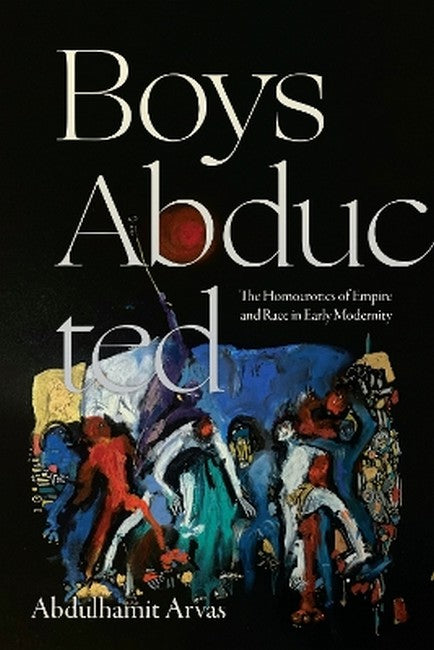Abdulhamit Arvas is Assistant Professor of English at the University of Pennsylvania and coeditor of Critical Confessions Now.
Request Academic Copy
Please copy the ISBN for submitting review copy form
Description
A Note on Transcription and Translations vii Acknowledgments ix Introduction 1 Part I. Boys Encountered 1. Traveling Boys in the Mediterranean 45 2. Mapping Boys on the Horizon 81 3. (In)visible Boys in English Abductions 109 Part II. Boys Transformed 4. Refashioning Boys 141 5. Regendering Boys 169 Part III. Boys in Modernity, East and West 6. Staging Boys, 1690-1990 199 7. The Orientalization of Boy Love: A Conclusion 221 Notes 233 Bibliography 277 Index 309
"In this unique and much-needed book, Abdulhamit Arvas analyzes the complex nexus of race, religion, gender, homoeroticism, empire, and social hierarchy brought into play by the widespread early modern practice of abducting boys. This is not an encyclopedic compendium of beautiful abducted boys for the prurient pleasure of the collector, but rather a mapping of the material relations of power behind this practice. No other work addresses the homoerotic traffic in boys so eruditely from both sides of the Ottoman/English divide, illuminating a great many crossings and borrowings between the two empires." - Kadji Amin, author of (Disturbing Attachments: Genet, Modern Pederasty, and Queer History) "A work of great archival research and comparatist ambition, Boys Abducted contributes crucially to the transcultural analysis of early modern violence, eroticism, and affect. By unfolding the literature and history of the Ottoman abduction and conversion of white European boys and young men, and by similarly tracing the representations of Ottoman and Black boys in England, Abdulhamit Arvas powerfully demonstrates the importance of reading these literary histories together and shows their astonishing crossings and mutual inflections. For scholars of premodern sexuality and early modern English literature including especially Shakespeare and Marlowe, the wealth of Arvas's intersectional analyses will be a revelation." - Jeffrey Masten, author of (Queer Philologies: Sex, Language, and Affect in Shakespeare's Time)

